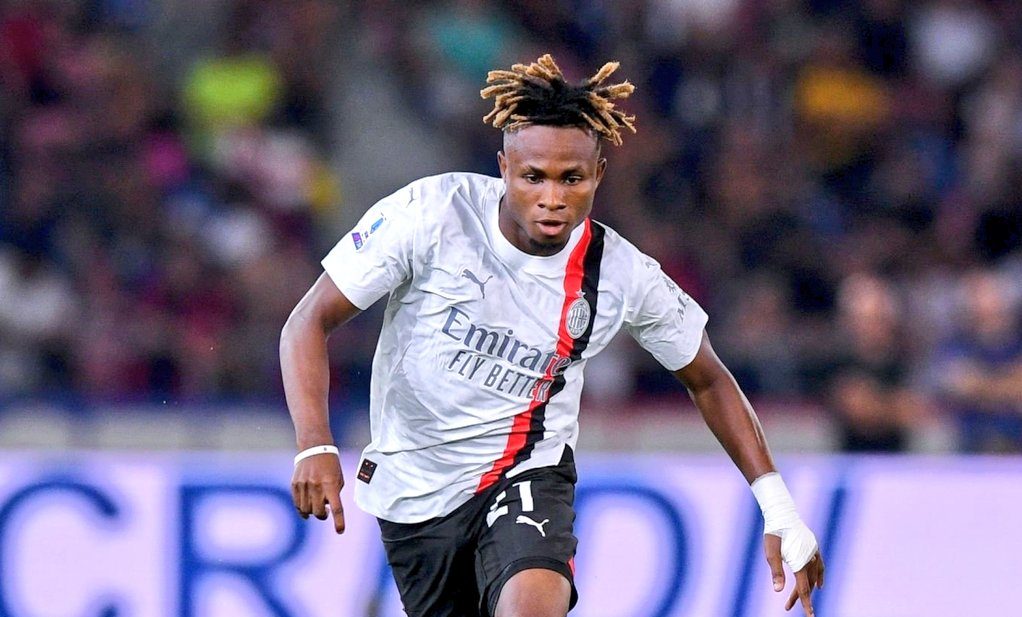AC Milan’s financial strategy for the upcoming season has hit a snag, with the club’s hopes of generating significant funds through player sales facing unexpected obstacles. The Rossoneri, having endured a disappointing 2024/25 season that saw them finish eighth in Serie A and miss out on European football, are keen to trim their wage bill and bolster their finances through strategic player departures. However, the club’s initial efforts to offload key players have yielded underwhelming results, leaving their financial plans in a precarious position.
One of the key players Milan had earmarked for a potential sale is Nigerian winger Samuel Chukwueze. Acquired from Villarreal last season for a fee of €21.1 million, plus potential add-ons of €7 million, Chukwueze was seen as a player with significant market value and the potential to attract substantial offers. However, initial interest from Real Betis has fallen significantly short of Milan’s expectations, complicating the club’s revenue-generating plans. Betis’s current valuation of the player is reportedly far below the amount Milan invested in him, leaving the Italian club reluctant to sanction a sale at a significant loss.
This setback underscores the challenges Milan are facing in their attempts to reshape their squad and improve their financial standing. The club’s eighth-place finish last season, coupled with the absence of European football, has put pressure on their finances, necessitating a more prudent approach to player acquisitions and departures. The lack of lucrative offers for players like Chukwueze highlights the difficulty of recouping investments in a competitive transfer market, especially when a player’s performance hasn’t fully justified their initial price tag.
Chukwueze’s performance during his first season at Milan was somewhat inconsistent. While he showed flashes of the talent that prompted Milan to invest heavily in him, he struggled to secure a regular starting position and his statistical output was modest. In 26 league appearances, he started only nine times, contributing three goals and two assists. Although he demonstrated his explosive pace and dribbling ability on occasion, his overall impact was limited, raising questions about his ability to consistently perform at the highest level.
Despite his inconsistent performances, Milan still recognizes Chukwueze’s potential and are hesitant to let him go for a price that doesn’t reflect his perceived value. The club’s reluctance to accept a low offer suggests a belief that, with more playing time and greater consistency, Chukwueze could eventually fulfill his potential and justify their initial investment. This approach, however, presents a dilemma for Milan, as they balance their desire to recoup their investment with the need to raise funds for squad reinforcements.
The stalled negotiations with Betis highlight a broader trend in Milan’s transfer dealings this summer. The club has also encountered difficulties in securing satisfactory offers for other players deemed surplus to requirements. These setbacks underscore the complexities of player sales in modern football, where factors such as player performance, market demand, and contractual obligations can significantly influence transfer valuations and negotiations. Milan’s struggles to offload players for their desired prices suggest a challenging summer ahead, as they attempt to balance their financial needs with their sporting ambitions. They are walking a tightrope, trying to build a competitive squad while simultaneously addressing their financial constraints.














